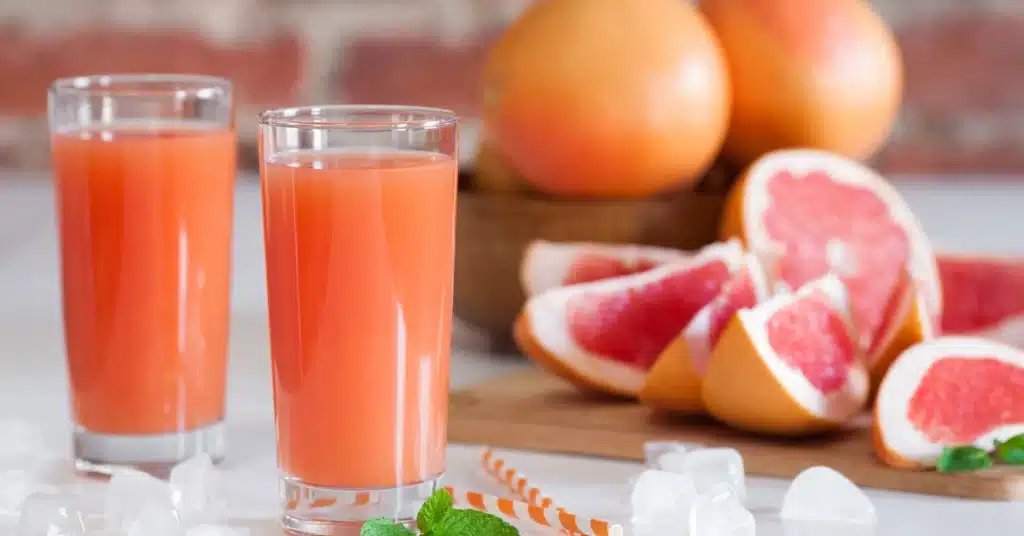What Foods Should be Avoided When Taking Levofloxacin? A Key to Avoid Complications
Levofloxacin is a broad-spectrum antibiotic from the class Fluoroquinolones used for treating various bacterial infections.
This FDA-approved antibiotic is generally safe to administer.
However, consuming certain foods with Levofloxacin can affect the body’s natural functioning and lead to symptoms such as upset stomach, gas, and nausea.
It is always a good idea to ask your doctor or pharmacist for medical guidelines to navigate food-drug interactions.
This article will help you understand what foods should be avoided when taking Levofloxacin to treat various bacterial infections effectively.
Which foods should you avoid while taking Levofloxacin?
Here are some of the foods that can disrupt the performance of Levofloxacin and can negatively affect the treatment:
Dairy products and Calcium
Dairy products that contain Calcium can cause a chemical interaction if taken with Levofloxacin.
The Calcium ion in the dairy product can chelate (ring structure with metal ion) with some drugs and decrease its absorption.
The dairy products and Calcium-fortified foods that should be avoided when taking Levofloxacin are:
- Milk
- Cheese
- Yogurt
- Ice cream
- Tofu
- Oatmeal
Also, Levofloxacin and other Fluoroquinolones can be prohibited due to the interaction with orange juice, bread, and other food items with Calcium.
Therefore, it is advised to consult your doctor before administering Levofloxacin to avoid any serious complications.
Alcohol

In most cases, your doctor strictly prohibits you from taking antibiotics and alcohol simultaneously.
Initially, Levofloxacin may not seem harmful, but combining it with alcohol can worsen Levofloxacin side effects, potentially leading to serious complications.
As a result, bacterial infection can take longer than expected to treat.
According to a 2020 study, moderate alcohol consumption does not have an adverse effect on Levofloxacin.
The researchers show conflicting results on the interaction between Levofloxacin and alcohol.
Still, it is recommended to avoid alcohol for the safety purpose and effectiveness of the drug.
Grapefruits

It is advised to avoid grapefruit and grapefruit juices when administering antibiotics.
Grapefruit can interact with certain antibiotics, and some sources also reveal its negative impact on Levofloxacin.
It can reduce the drug’s effectiveness and interfere with its ability to get absorbed into the bloodstream.
Moreover, grapefruit juice can inhibit or block the action of the intestinal enzyme CYP3A4.
CYP3A4 metabolizes the majority of drugs and protects our body from environmental toxicity.
Its inhibition can lead to more drugs entering the blood and staying longer. It causes toxicity and other undesirable adverse effects.
Also, according to the FDA, the amount of CYP3A4 varies from person to person.
Also read: Learn more about Levofloxacin and its warning signs to avoid potential complications. Read our article, Levofloxacin Warnings: What You Should Know Before Taking It.
Other foods to avoid
A high-fat meal before administering Levofloxacin can delay the absorption process of the drug, but the overall capacity for digestion of the drug was not altered.
However, Levofloxacin can cause antibiotic-induced diarrhea.
Foods rich in Magnesium, along with antacids and supplements, can reduce the intestinal absorption of Levofloxacin.
Moreover, foods and supplements that are rich in Iron can also reduce the absorption and efficacy of Levofloxacin.
Furthermore, certain interactions can cause bleeding or clotting disorders due to the depletion of Vitamin K.
The foods rich in Magnesium, Iron, and Vitamin K are:
- Dark chocolates
- Leafy vegetables
- Cashew
- Legumes
- Red meat
- Avocados
- Soybean
- Leafy vegetables
Therefore, people administering and consuming foods with these nutrients should be cautious and consult their doctor to avoid complications.
You can administer Levofloxacin with proper knowledge of its interactions and by following safety measures to improve its effectiveness and treat the condition.
Conclusion
Levofloxacin is an FDA-approved effective medication for treating various bacterial infections.
However, some food products can interact with the antibiotic, reducing its overall effectiveness.
The first food interaction can be seen with grapefruit juice.
It can reduce the effectiveness and interfere with the drug’s ability to get absorbed in the bloodstream.
The second food interaction can be seen with dairy products and Calcium.
Moreover, Levofloxacin should not be administered with other food items with Calcium, such as bread and orange juices.
Alcohol is also known to affect many antibiotics and slow down the treatment.
However, according to a 2020 report, moderate alcohol consumption does not have adverse effects and can be consumed.
Levofloxacin can also interact with certain supplements and foods that contain Iron, Magnesium, and antacids to reduce its efficacy.
Therefore, seeking guidance and knowing your antibiotic completely is always good.
Frequently Asked Questions
What foods should you avoid when taking Levofloxacin?
When you are administering Levofloxacin to treat bacterial infections, alcohol, dairy products, and foods with Calcium, Magnesium, Iron, and antacids should be avoided. These food interactions can negatively impact the effectiveness of the antibiotics and can take longer to get absorbed.
What not to eat with Levofloxacin?
You should not eat dairy products with Calcium, along with grapefruits, alcohol, and food supplements that contain Magnesium, Iron, and antacids. They can reduce the effectiveness of the drug and can lead to difficulty in absorption into the bloodstream. Therefore, you should always consult your doctor to avoid health complications.
What happens if you eat dairy with Levofloxacin?
Dairy products, such as cheese and milk, contain Calcium and can cause a chemical interaction with Levofloxacin. The Calcium ion in dairy products can bind with drugs and reduce its absorption. Therefore, consume dairy products a two-hour gap of administering Levofloxacin. However, you should ask your doctor for efficacy.
How long should I wait after taking Levofloxacin before consuming dairy products?
You should administer Levofloxacin before or after 2 hours of consuming dairy products. Dairy products contain Calcium ions that can bind with the drug and reduce its absorption. You can also consult your doctor or pharmacist to know more about the drug interaction.
Are there any food or juice restrictions when taking Levofloxacin?
When administering prescribed Levofloxacin, you should avoid consuming dairy food products, alcohol, and foods that contain Magnesium, Iron, and antacids. These foods can interact with the drug and reduce its effectiveness. Therefore, it is recommended to consult your doctor to avoid health complications.
WowRx uses only high-quality sources while writing our articles. Please read our content information policy to know more about how we keep our content reliable and trustworthy.






